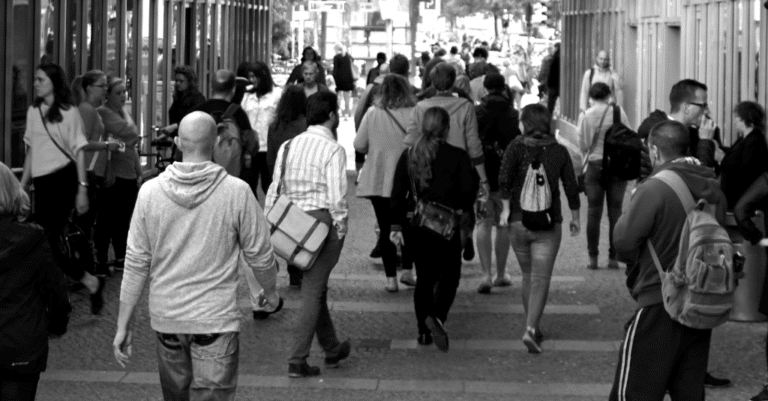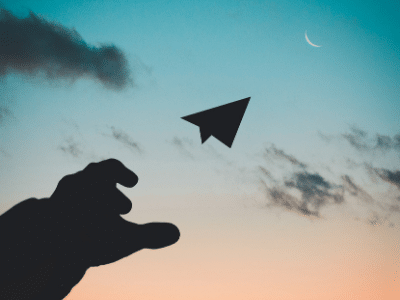

Are you struggling to manifest the things you desire? Perhaps you've been working with the Law of Attraction for a long while, and you feel like you've done absolutely everything imaginable to bring your dreams to fruition.
Maybe you say your affirmations every morning, visualize your goals every evening and put an entry in your gratitude journal every day, and yet nothing is working.
If this sounds familiar, you might have an issue with what is known as the bystander effect.
In this article, we'll explore and explain exactly what this bystander effect actually is, and show you how it may be constantly at play in your own life.
We'll look at the research behind this psychological phenomenon, and prompt you to reflect on your relationship with personal responsibility. Most importantly, we'll lead you through three powerful techniques that will improve your potential for manifestation – starting today.
Firstly, what does ‘bystander' mean? A bystander is someone who is present in some scenario but isn't the main person involved, and the classic example refers to how we respond to emergencies.
So, imagine that someone faints on the street, or a person is shouting for help. You'd like to imagine that you would do something to assist them, right?
However, while we all think this is true of ourselves, psychologists have shown that contextual factors impact whether we're actually likely to take part in helping others.
In particular, whether there are lots of other witnesses on the scene will influence whether a bystander will try to assist.
In the original studies, psychologists Latané and Darley showed that we're slower to take action the more observers are in the round. For example, the experiments started to fill the room with smoke in one case.
75% of people reported the smoke almost immediately when on their own, but closer to 40% reported the smoke when they were in a group with two other people. Further, just 10% made a report when they were with two people who noticeably ignored the smoke.
Even more shockingly, 70% of people helped a distressed woman if they were alone with her, but only 40% tried to help if others were present.
Psychology experts tell us that a key factor in bystander effect cases is a diffusion of responsibility.
In other words, when we are one among several people observing an event, we're aware that responsibility is shared between us.
We often assume that if someone needs to act, someone will already have done so.
The presence of observers is also key to the bystander effect.
When we know we are being watched, our awareness of social norms and exceptions come into play.
When we see that other people aren't reacting, we get the message that we don't need to react either.
We also become aware that we might be judged by other observers if we don't act in the way they expect, or the way they think is morally appropriate.
This effect is compounded in ambiguous situations.
If we're confused about what is happening, we'll hold off on acting in case we get it wrong in front of the other observers.
You now have a better understanding of what the bystander effect involves, and how it changes your thinking.
With this in mind, let's consider how you can break the bystander effect and become the opposite of a bystander – an active bystander, or “upstander”.
Then, we'll take a closer look at why the bystander effect can have such a profound impact on your ability to manifest your best life.

Establishing a daily mindfulness practice literally changes your brain in a way that promotes well-being and helps you to better tune into the present moment.
This, in turn, improves your observation skills and helps you more clearly see the possibilities for action in any given scenario.
You're more likely to act instead of being a passive bystander, and you're also more capable of disconnecting from the judgments of others.
Try setting aside 10-15 minutes each day for meditation.
If you're not experienced, don't worry – simply trying to focus on slow, steady breathing for 10 minutes can begin to train and change your brain.
Cultivating and enhancing your empathy helps you to build the resilience and confidence to act. When you put yourself in other people's shoes, you're less susceptible to the bystander effect – you're able to see why they may not be acting, and why it might be your place to act.
Empathy also builds positive energy toward others, as you become less likely to blame and judge others and more likely to feel love and compassion for them.
When you vibrate on a loving, positive frequency like this, you attract more positivity into your life. This will come in the form of new connections and new opportunities.
While mindfulness improves your ability to observe and interpret the present moment, you can further enhance your observation skills by building your self-awareness.
Work on noticing and understanding your responses to things that happen in your life, perhaps by keeping a daily gratitude journal.
When you know what kinds of situations and people trigger positive and negative emotions in you (and why), you know where to direct your time and attention.
Once again, this boosts your vibrational frequency and helps you better manifest the thing you want most.
Whether it's love, money, a fulfilling career, or simply increased confidence.
When you're influenced by the bystander effect, there are a few reasons why it's harder to manifest. Firstly, you're inhibited by an awareness of other people's perceptions.
You might not take opportunities, put yourself forward, or speak out for fear of negative judgment. This is especially so if people around you have a rigid set of ideas about what makes a life successful.
If you have unconventional goals and passions, the bystander effect can make you feel incapable of acting in an authentic way.
Secondly, you're held back by diffused responsibility – which, remember, is a sense that you have less responsibility than you really do.
You may start to think that others will do all the work for you, falling into a victim mentality and thinking everyone else is to blame when you don't manifest your goal.
Moving beyond the bystander effect in the ways described above helps you take appropriate responsibility and disconnect yourself from the judgment of observers.
If you want to further improve your manifestation potential, creative visualization is one of the most powerful tools you have. Even if are already good at visualizing your goals, self-hypnosis can take your abilities one step further.
By getting past your conscious defenses and tapping into your subconscious mind, hypnosis helps to supercharge your imagination and help you tap into all the details of your ideal life.
This kind of assisted visualization can even help you discover your true purpose and life goals. So if you're feeling uncertain about the future or just want to sharpen your Law of Attraction skills, try our self-hypnosis recordings today.

Geraldene Healey says:
I desperately want to alter my subconsious mind to start manifesting the things I know are meant for me the things I have been consciously visualizing for so long but have not been coming to pass. Please help, I have even studied hypnotherapy I don’t know what is blocking me